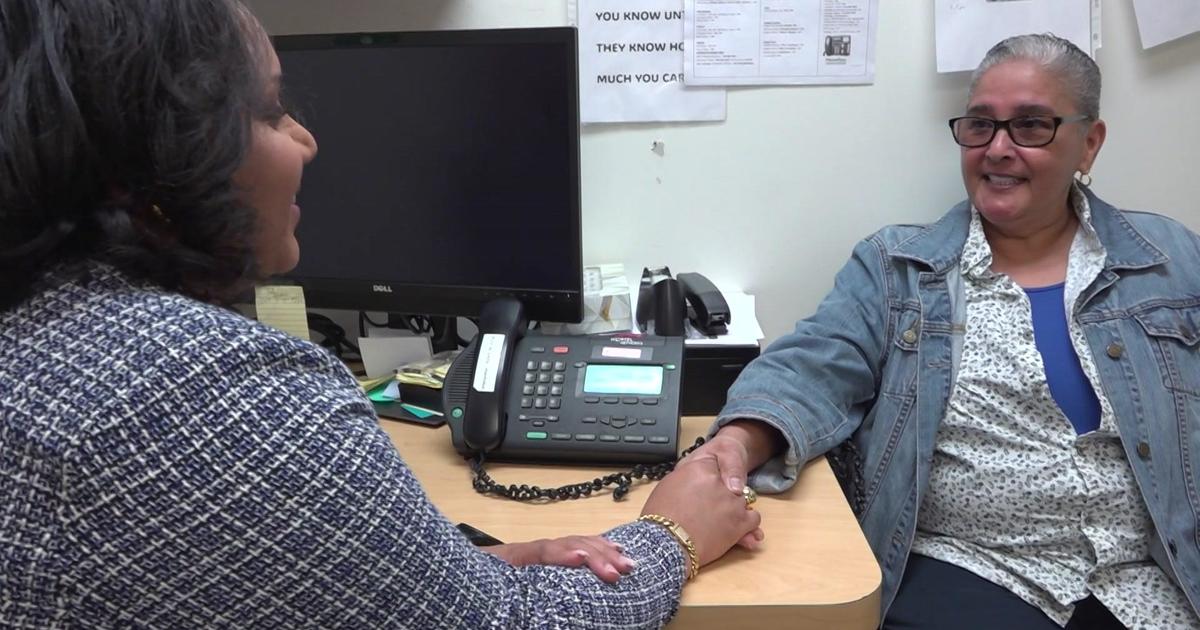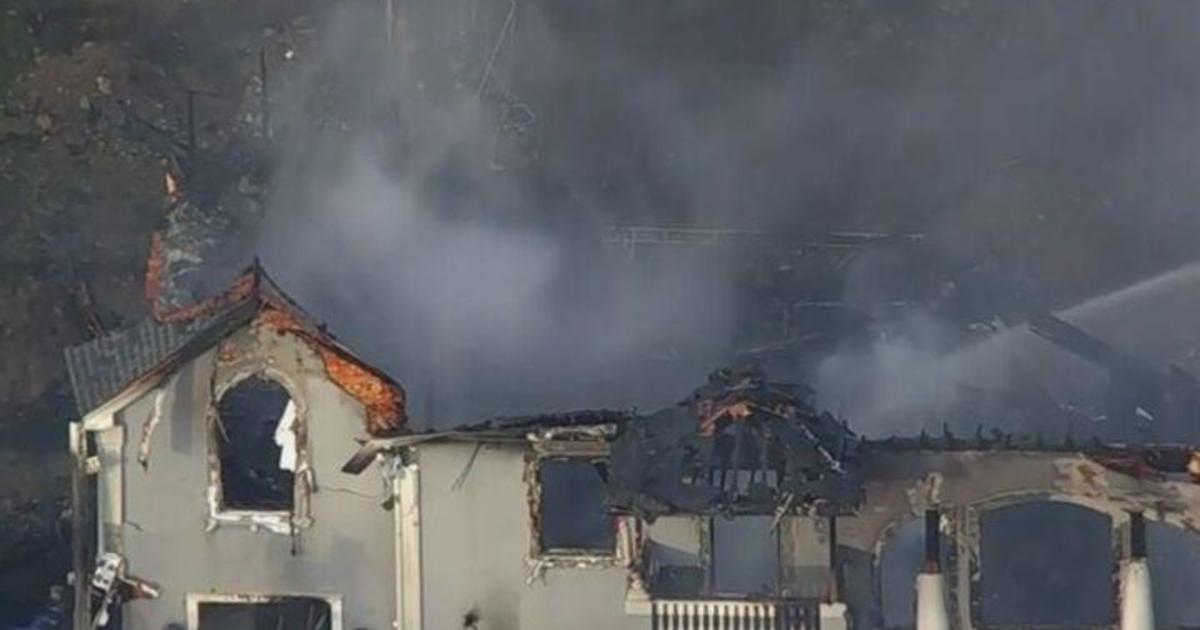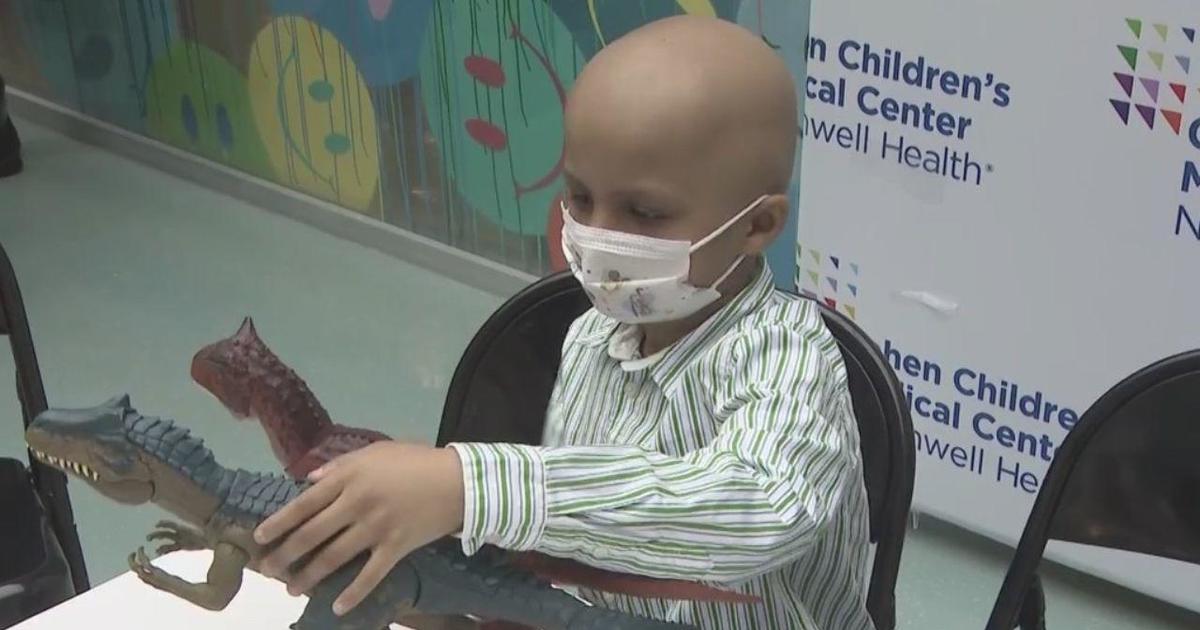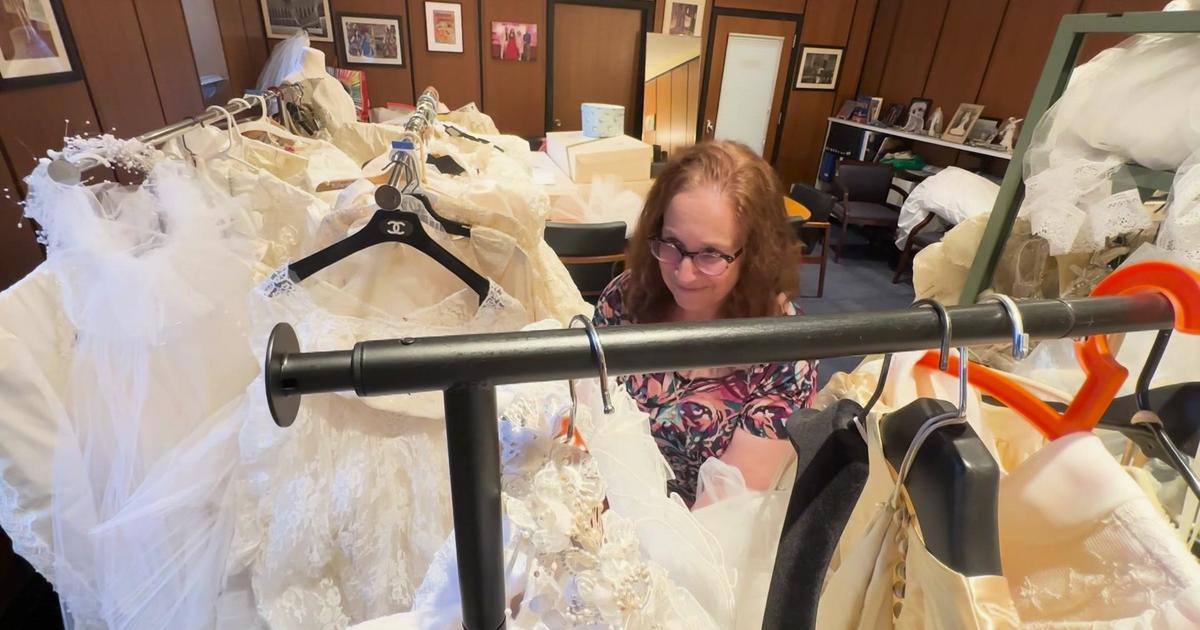Connetquot High School Students Band Together To Help Save Long Island Seafood
STONY BROOK HARBOR, N.Y. (CBSNewYork) -- There's been a drastic decline in the clam population in Long Island sound. Now students are teaming with scientists to save our seafood.
CBS 2's Jennifer McLogan witnessed the last clam standing following the lunchtime rush at a seafood shack in Centerport on Friday.
"Everyone's a seafood nut out here and they can't get enough of it. And we want to have enough of it for everyone," The Shack's Mace Colodny said.
Students from Connetquot High School's "Clam Club" said they want safe and plentiful seafood. They joined their science teachers and marine biologists to seed and plant thousands of baby clams and oysters.
"I particularly love crabs, clams I love, and scallops are good as well, and oysters!" student Aly Nilsen said.
"We've seen a decline over the past couple of decades in clam and oyster populations, so we are trying to help the natural stock and re-seed the bays," said marine biologist Amity Bintliff of Western Suffolk BOCES.
The group effort is part of a massive restoration and replenishment project for the coveted clam. Experts say clams clean toxins and purify our water.
"And clams are that indicator species, so if the clam population is down, then fish population will be down," Connetquot science teacher Lori Forgione said.
Clammer Jon Lee said he's seen a steady decline in shellfish beds.
"I'm grateful I'm able to earn a living off the water," Lee said.
But Roger Gayknee and other clammers and baymen said without help, their futures are bleak.
So, the students constructed floating rafts, filled them with sediment, counted and measured clams by the millimeter, and carefully sprinkled them into the saltwater beds, where they will be monitored all summer.
"I'm one person and I can make a difference," student Grace Gorgone said.
In October, the same students will return to harvest the clams. They will have grown from microscopic sizes to nearly an inch in diameter, and will be placed and seeded in the bay.
The scientists said some of the drastic decline is due to poor water quality and overfishing certain species.
You May Also Be Interested In These Stories



